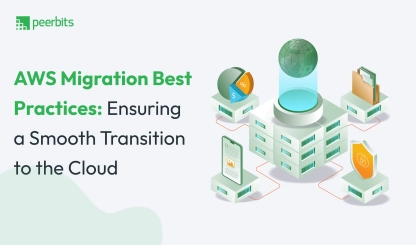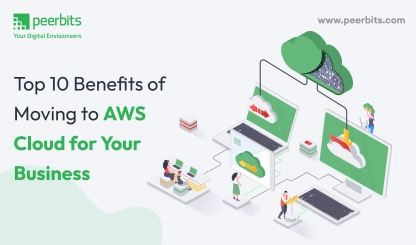Nowadays, businesses rely on cloud technology to grow. More data is stored, computed, and parsed on the cloud. Recent surveys suggest that over 94% of organizations have adopted a cloud-based setup in some form.
The reason for such adoption is scalability and reliable uptime. This is where Amazon Web Services (AWS) takes center stage. There is a range of services you can leverage, making businesses choose from different AWS Managed Services Partners (MSP). Such service providers offer flexible solutions without hefty upfront investments.
A trusted AWS services provider will oversee day-to-day operations, allowing the internal teams to focus on product growth and market opportunities.
Critical gains also exist in areas like AWS cost management, where an experienced partner can identify wasted resources and suggest better pricing models.
Reports have noted that a strong MSP approach can spot and manage up to 80% of security incidents before they balloon into bigger problems.
We’re about to explore seven key factors that you and your peers should consider when selecting the right team. This approach requires considering technical expertise, security posture, ongoing optimization, and how these services affect monthly bills.
Let’s begin!
Who are AWS Managed Service Partners?
An AWS Managed Services Provider (AWS MSP) is an expert service firm specializing in Amazon Web Services. They have a well-recognized skillset in designing, deploying, and managing workloads on the AWS platform.
Below are a few of the tasks that AWS MSPs perform.
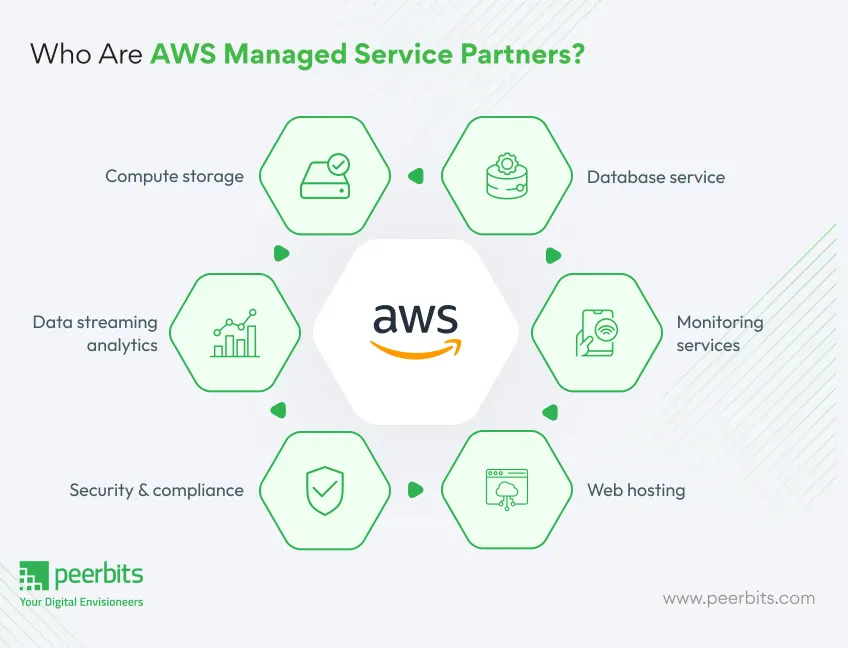
AWS evaluates these partners in detail, examining their technical know-how, customer successes, and operational processes. An official AWS designation means the provider has met a set of standards for infrastructure management, continuous support, and compliance.
A few major characteristics that define the AWS Managed Services provider are as follows.
Characteristics of AWS Managed Services Partner
Let’s find out the primary characteristics that are atypical of top AWS Managed Service providers.
i. Deep AWS expertise
A true AWS Managed Services Partner features a team with different AWS certifications, such as Solutions Architects or DevOps Engineers. They contribute to adopting the latest AWS trends and features while reliably addressing your project needs.
ii. 24/7 Monitoring and support
Round-the-clock cloud supervision prevents problems from going unnoticed. The MSP works on automated alerts, ticketing systems, and quick escalation paths that reduce downtime and meet cloud monitoring & server maintenance service objectives.
iii. Proactive management and optimization
Instead of waiting for outages or performance issues to occur, these providers monitor consumption patterns and intervene with fixes or improvements. It involves planning reserved instances or suggesting AWS cost reduction strategies.
iv. Specific Service Level Agreements (SLAs)
An AWS MSP offers more explicit goals for availability, response times, and resolution times. These commitments hold them accountable for delivering quality services.
Benefits of partnering for AWS Managed Services
There are plenty of AWS partner program benefits that your business can experience when choosing from the top AWS Managed Service Providers.
Below are a few major ones you can certainly anticipate.
i. Enhanced cost-optimization and resource usage
The targeted AWS cost management provides ongoing advice on right-sizing, discount options, and resource cleanup to reduce expenses and improve performance.
ii. Access to specialized technical skills and best practices
Get the support of experts who have worked on various AWS scenarios to gain an edge when launching new features or handling demanding workloads.
iii. Focus on core business instead of infrastructure tasks
Handing off repetitive tasks to AWS partners lets your teams focus on product improvements, customer relations, or new market opportunities.
iv. Scalable solutions aligned with growth
As your user base expands, an AWS MSP can tweak resources or add services without significant hiccups, so you don’t waste time on system rework.
Standard engagement models provided by Managed Services Providers
You can check for different types of managed services engagement models from which you can choose. Below, we’ve highlighted a few of those in detail.
i. Full-service management vs. shared-responsibility
A full-service management provider handles almost every aspect of AWS Infrastructure Management, such as provisioning, updates, and support. In the case of AWS full-service management, this co-management would mean having your team and the MSP share responsibilities.
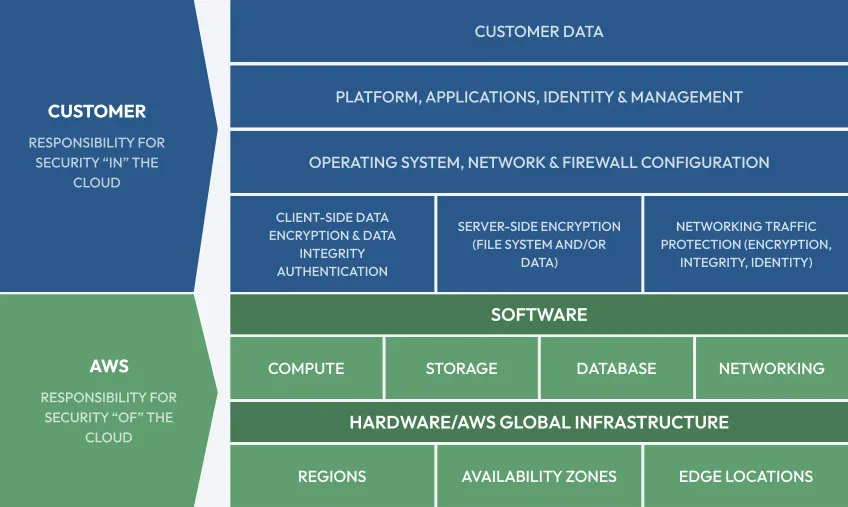
Of course, the in-house engineers will have relatively more control over key functions.
ii. Project-based vs. Retainer-based engagements
Project-based work is suitable for short-term tasks like migration or a one-time AWS Managed Service audit. Retainer-based agreements usually apply to ongoing efforts, like 24/7 support or continuous optimization.
iii. Short-term vs. Long-term managed services
Many organizations need the assistance of AWS service providers only during a busy season. Others may prefer a continuous partnership for several years. So, the choice depends on your workload patterns and goals.
Read more: Guide to managed cloud services: Types, use cases & more
Key considerations before choosing AWS Managed Services Providers
Investing in top AWS Managed Service Providers can help shape the evolution of your platform, reduce costs, and comply with regulatory rules. Therefore, we’ve iterated below a few major considerations that you must make before choosing an AWS Managed Services Partner.
Assessing your own requirements and maturity
Evaluating an AWS Managed Service will require considering the business needs and the implications of hiring a partner.
For this, you must run the checks as below.
i. Check current infrastructure and applications
Look at your current technology infrastructure and systems. Also, see if your needs require specialized AWS services, such as advanced analytics or serverless features.
ii. Determine the team’s in-house skill set
Evaluate how much your developers or system admins already know about AWS. Then, brew ideas around their involvement and whether they prefer a co-managed style to maintain a sense of ownership.
iii. Gauge security and compliance needs
Do you handle medical data (HIPAA) or payment information (PCI-DSS)? To remain cloud-compliant, make sure the MSP can manage these rules without fail.
iv. Set growth trajectory and business goals
If you plan to scale rapidly, double-check that your partner can keep up with that pace. It usually means identifying future goals and gauging the evolution of technology so that you can have the AWS MSP to help you scale faster without issues.
Defining scope and expected outcomes
Next, you’ll have to set boundaries and decide on possible results that you’d want to achieve with the help of a top AWS Managed Services Partner.
Consider the factors mentioned below when you set out to do so.
i. Desired AWS services and coverage (compute, storage, networking, databases, etc.)
Clearly define what you expect the partner to manage. Some might manage your entire AWS Managed Services list, while others will focus on specific parts.
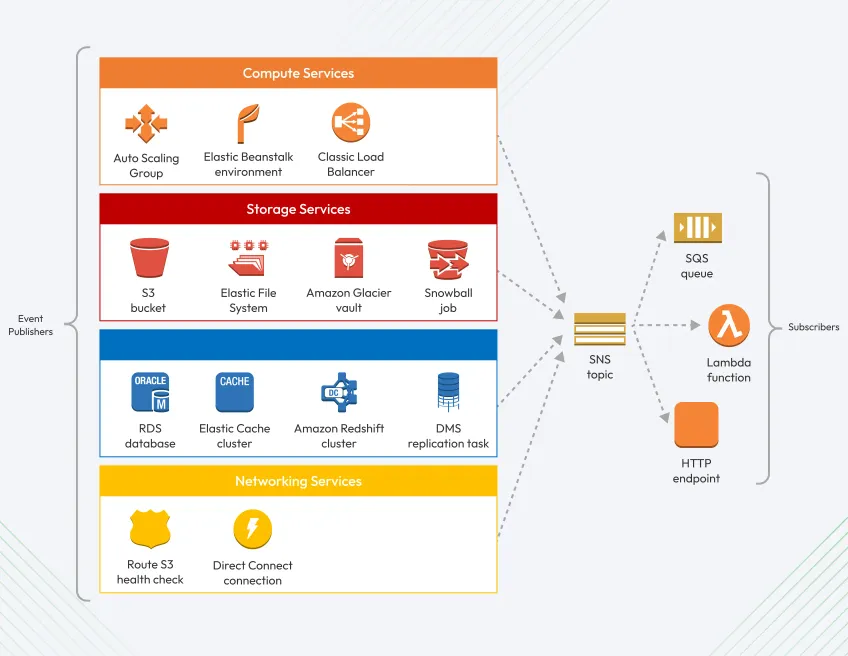
Therefore, the AWS service partner should communicate your technical needs and finalize the services you would provide for the business.
ii. SLAs and performance metrics
Clarify how quickly you want issues resolved and what happens if those objectives aren’t met. The service level agreements should mention AWS performance metrics, such as uptime and availability (in percentage), acceptable error rate, latency/response time, etc.
iii. Timeline for setup and ongoing support
Chat about your launch window and how you’d like to handle day-to-day tasks afterward. It's one way to make sure that your service provider has the right set of AWS security tools and AWS cloud compliance in place.
Budgeting and cost structure
Finally, when choosing a reliable service partner, examine the finances more closely to ensure that the right AWS cost-reduction strategies are in place.
Therefore, you’ll need to make sure of the following:
i. Understand pricing models (fixed, variable, pay-as-you-go)
Different MSPs price their services differently, which can affect your monthly bill. Below are a few major pricing models that you can choose from.
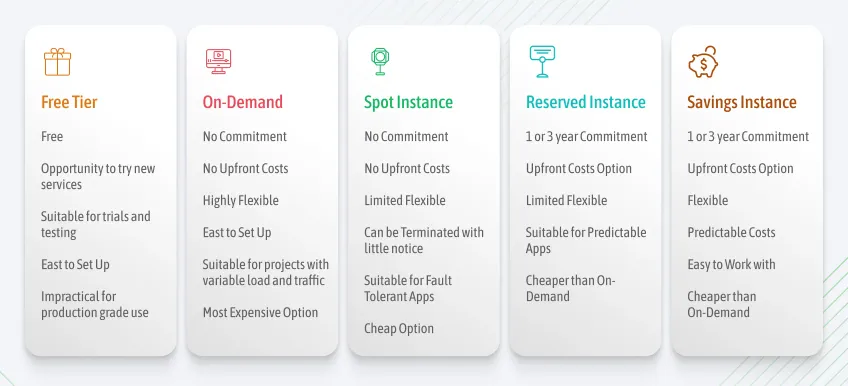
ii. Seek transparency in MSP cost breakdown
Allocating a balanced budget requires a clear split between management fees, AWS bills, and any extra charges. Only with such transparency can you avoid any surprises or additional costs.
iii. Alignment with overall cloud strategy
The billing model should reflect your workload patterns—whether it’s on-demand, reserved, or spot instances. The MSP should also optimize cost through rightsizing, auto-scaling, and leveraging cost-saving tools like AWS Savings Plans or Reserved Instances to align with your budget goals.
7 Critical factors to evaluate in an AWS MSP
The core of any AWS partner evaluation checklist is a few factors that go into making the right choice.
Below, we analyze seven key pillars that help you choose the quintessential AWS services provider that can set your business up for success.
1. Check for technical expertise and certifications
An experienced AWS MSP will have the ability to work with different sorts of AWS services. They keep up with new tools and also hire certified engineers.
Below is a brief overview of such AWS certifications across different levels.
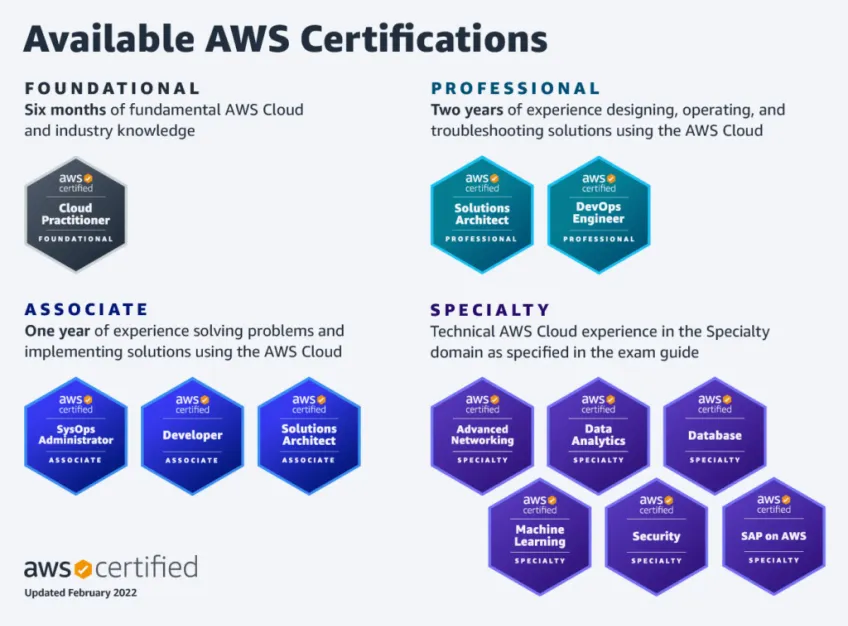
Further evaluating this factor will require considering the following checks:
i. AWS competencies and certifications
An AWS service partner needs to have some core competencies. As you recognize this, check if they have the necessary experience in each of these and more.
- DevOps
- Migration
- AWS Security
For instance, an MSP with the AWS Migration competency might be well-suited for re-hosting or re-platforming your legacy apps. Also, decide if they have staff with badges such as AWS Certified Solutions Architect, AWS Certified SysOps Administrator, or AWS Certified DevOps Engineer.
ii. The breadth of services and experience
You may come across many AWS service partners who claim that they can manage popular services like Amazon EC2 or Amazon S3.
So, check if they have the necessary team for serverless computing through AWS Lambda or database tasks involving Amazon RDS.
For better assurance, run through their past engagements or access their case studies to see if they’ve tackled large-scale rollouts or specialized setups.
iii. Depth of expertise in emerging technologies
You want specialized experts in each domain within the AWS ecosystem. For instance, you might want AWS enterprise support for businesses or those with strong knowledge of containers (Amazon ECS or EKS), AI/ML frameworks (Amazon SageMaker), or IoT solutions (AWS IoT Core).
2. Security and compliance posture
When you want to store a large amount of data in the cloud, you cannot ignore the security and compliance aspects.
Therefore, when choosing an MSP, look for one that boasts in-depth knowledge and understanding of AWS security certification to help configure controls and keep the data safe.
Below are a few different ways you can check it.
i. Security Frameworks and Best Practices
Ask if they use AWS security tools like —
Knowing these would help defend against risks and keep logs of user actions. An MSP that follows recognized security frameworks can also offer better peace of mind.
Review if the AWS MSP has experience guiding clients through regulatory standards like HIPAA, PCI-DSS, or GDPR. Ask questions about how they track changes, manage log access, and handle data requests.
Also, look into their approach toward AWS Managed Service Audit so that your business operations have all the answers prepared when external teams come knocking.
ii. Data governance and protection
Implementing encryption for data resting in the cloud or transit will require you to inquire about the MSP's plan for responding to security breaches. This plan will cover everything from incident detection to post-event reviews.
That’s why you’ll need to check for their disaster recovery plan and review their backups and replication strategies that meet your needs.
3. Scalability and flexibility of services
When your user base increases, your MSP should be ready to expand resources quickly. Such fast-pivoting scalability and flexibility are essential for startups and fast-growing ventures.
i. Elastic infrastructure management
Auto-scaling in AWS involves increasing or decreasing capacity based on usage. To maintain performance, the AWS MSP will need to leverage Amazon EC2 Auto Scaling, AWS Fargate, or other relevant services.
Their approach to capacity planning should also include cost implications to make sure that you don’t pay for unused resources.
ii. Customization and adaptability
Make sure that the AWS MSPs services package is not too rigid for specific industries. This way, you’ll see if they’re comfortable working with a hybrid cloud setup or multi-cloud arrangement if that’s on your plan.
iii. Supporting growth and evolving requirements
The AWS cloud workload is bound to increase as your business grows. Therefore, demand a roadmap from MSPs on how they can adopt new AWS offerings to provide you with fresh updates and help keep up with market trends.
4. Monitoring, support, and SLAs
Monitor your AWS setup on an ongoing basis to know if the partner can maintain stability as you expect prompt responses, detailed reports, and transparent escalation processes.
Below are the few sub-factors that you should consider when looking for top AWS Managed Services Providers.
i. 24/7 proactive monitoring and alerting
Go for MSPs that rely on Amazon CloudWatch. Others use third-party tools for deeper visibility. Confirm which tools they prefer and how they respond to events that occur after hours or on weekends.
ii. Defined SLAs
SLAs set the tone for what you can expect in terms of availability and response times. When assessing an AWS Managed Service Audit, look at the fine print of these agreements to see how they handle advanced requests like security patches or emergency expansions.
iii. Incident management and support framework
A multi-tier support structure (L1, L2, L3) usually works best. In such cases, when a problem arises, a direct approach to contracting and escalating issues can save you hours of frustration. So, find out ways you can reach them by phone, chat, or email while you confirm whether they provide access to a dedicated account manager or a single point of contact.
5. Proven track record and customer references
It’s easy to say your prospective vendor is a leading AWS Managed Services Provider, but actual references separate fact from fiction. Try speaking to previous or existing clients whenever possible and scanning their records.
Basically, you’ll look into the following areas:
i. Case studies and testimonials
Is your future AWS services provider publishing their client’s success stories on their websites?
If so, check them out and look for ones that involve challenges close to yours. If you run an Ecommerce shop, a case study about handling high traffic during seasonal events might be especially relevant.
ii. Long-term client relationships
Check if the vendor has longstanding ties with multiple customers. It suggests consistency in performance and also their ability to navigate changes in AWS services over time.
iii. Reputation in the AWS community
Ask if the AWS Managed Services Provider participates in AWS events, user groups, or open-source projects. Some MSPs have even won awards from AWS or local tech associations, offering assurance of their capabilities.
6. Continuous optimization and cost management
One of the biggest reasons companies pursue an MSP is better cloud cost outcomes. The best AWS Managed Service Partners don’t just deploy and forget. Instead, they monitor spending patterns to refine usage and billing.
i. Cloud financial management
Does your MSP understand AWS cost management? Because that keeps tabs on reserved instances, savings plans, or more advanced discount methods. Also, check if they have a regular cadence to report on spending and usage trends.
ii. Performance and efficiency improvements
Beyond cost, check if the MSP can fine-tune the performance of critical apps. It requires assessing their capabilities to use advanced caching or balancing data across different availability zones.
iii. Automation and infrastructure as code
Some teams deploy environments using AWS CloudFormation, Terraform, or Ansible. These automated templates reduce errors and speed up changes. If your MSP includes infrastructure as code in its process, that’s a massive plus for consistency and repeatability.
7. Culture, collaboration, and communication
Make sure that your AWS Managed Services Provider works together to drive collaborative results.
You’ll have to check for the following:
i. Alignment with organizational values
Determine whether their work culture matches yours in terms of valuing open-source contributions, work-sharing environment, and so on. So, check if the MSP you’re choosing also features the same sort of environment.
ii. Collaboration and transparency
Seek regular check-ins to discuss progress, issues, and updates from AWS. An MSP that shares reports and design documents openly helps you understand decisions better. So, ask upfront about how they handle any recommended adjustments to your AWS environment.
iii. Training and knowledge transfer
Is the MSP open to training your staff? This way, your team can remain well aware of the day-to-day operations they run. Make arrangements for workshops, recorded webinars, or direct mentorship so that your team builds confidence.
How to evaluate and shortlist potential MSPs for AWS
Checked AWS services provider but how can you evaluate them?
Try shortlisting them so that the process and objectives remain clear.
You’ll have to break things down into measurable criteria that result in choices that match your priorities.
Here are a few ways to consider.
RFI/RFP process
One way to narrow the field is through a formal Request for Information or Request for Proposal. Outline your business and technical requirements, including the seven aspects we just went through. Initially, mention the architecture, compliance needs, or plans for expansion.
This approach promotes each MSP to explain how they address each factor, making it easier to compare apples to apples. Include sections about AWS Infrastructure Management, AWS MSP checklist items, security processes, and any AWS cost reduction strategies they might deploy.
Comparative scoring and analysis
A weighted scoring system helps you line up each provider against your must-have items. Some organizations grade security higher, while others value round-the-clock support more.
Assign points to each factor or check if the provider does offer that.
A sample of how you can run a quick comparative analysis is mentioned below:
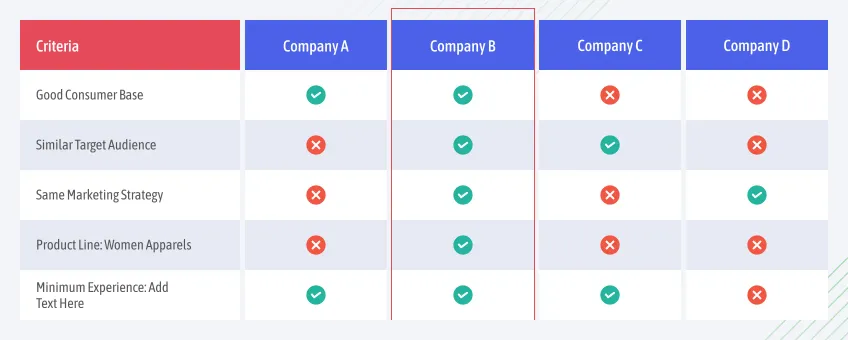
Define and prioritize your criteria based on these, and evaluate each to see which ones meet most of them.
Some might score well on one part, such as in data protection, but trail behind on real-time monitoring. So, make sure you set priorities for your business and what to expect from an AWS services partner.
Interviewing and reference checks
After shortlisting, schedule calls or demonstrations. Live discussions make way for asking detailed questions about methods or processes and assessing the MSP staff's communication skills.
Request references from businesses that have faced similar issues to your own. That could be a major data migration, an AWS Managed Service Audit, or a new Ecommerce launch.
Read more: End-to-End AWS Consulting: From planning to execution
Common pitfalls and challenges in choosing AWS MSPs
Picking a provider for AWS Managed Services might seem simple at first, but pitfalls can emerge when deeper details are considered.
If you focus only on price or chase after brand names without questioning their suitability for your setup, you might have big headaches later. Businesses may also underestimate the complexity of specific compliance requirements.
Let’s look at a few frequent missteps.
1. Overlooking cultural fit
Don’t be too consumed by the provider’s technical strengths. Remember the human side as well. Even the best AWS partner program benefits can’t fix a mismatch in communication style or values. If your team thrives on frequent updates and the MSP rarely checks in, frustrations will build.
2. Underestimating compliance requirements
Not all MSPs are prepared to handle strict industry regulations. If your data is under HIPAA or PCI-DSS rules, look for an AWS MSP partner who has experience working with clients serving in your industry so that you remain confident when the audits come.
3. Failing to plan for scalability
Cloud demands can rise quickly, so you need to make sure your partner is equipped to adjust resources soon so that there is no downtime or missed opportunities when usage spikes. A provider that can’t handle rapid changes can create a bottleneck for your growth.
4. Ignoring long-term cost optimization
Some MSPs handle the initial setup well, but they might ignore continuous AWS cost management. Over time, unused resources and inefficient configurations add up.
So, make sure that your partner commits to regular check-ins and refine your environment so you won’t be left with a sky-high cloud bill.
Conclusion
That’s it!
So far, we’ve covered everything you’d need to choose AWS Managed Services. One thing is for sure: managed service cost optimization is only possible if you’re successful in choosing the right AWS Managed Services Provider.
You’ll need someone with enough technical skills and experience to understand your vision while monitoring costs closely.
From technical certifications and proven track records to cultural synergy and open communication, each component will eventually lead to a fruitful collaboration.
If all these elements align, you’ll gain a strong ally who supports your immediate goals and any future twists.


